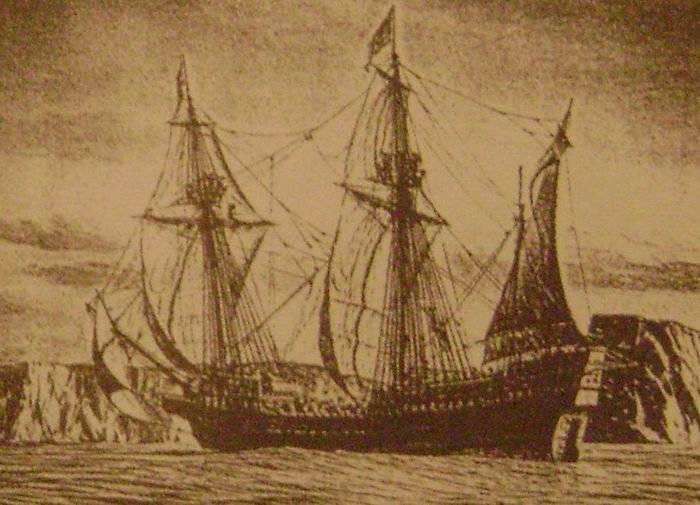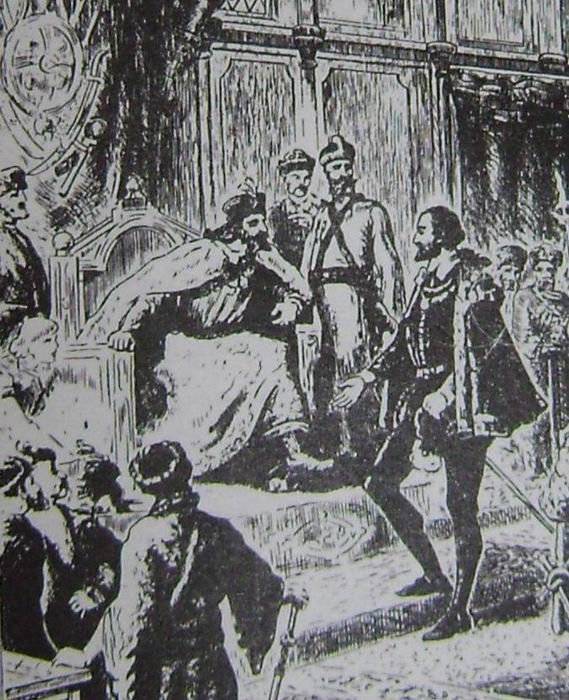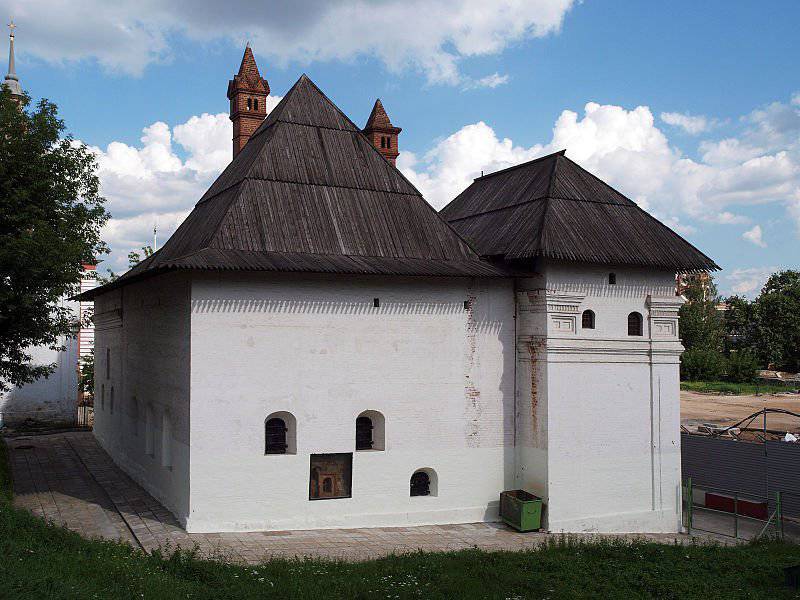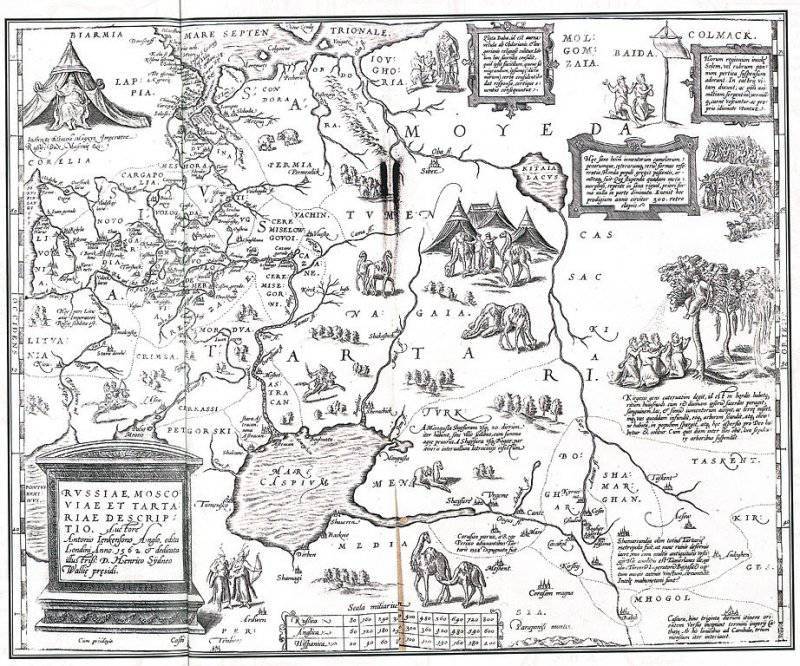Elizabeth and Ivan the Terrible. The first page of the Russian-English relations

During the reign of Tsar Ivan IV Vasilyevich, in the middle of the XVI century, trade and diplomatic relations between Russia and England were established. Generally story The development of Russian-English relations easily fits into the framework of the basic laws that characterize the relations between Russia and the countries of Western Europe. In the era of the Old Russian state, there were quite active ties between the Russian lands and the European states, including dynastic marriages. In particular, the first wife of Vladimir Vsevolodovich Monomakh was Gita Wessex, the daughter of King Harold II of England. During the reign of the Horde, the Russian lands fell into some kind of isolation, which was not complete. Relationships are mainly limited to contacts with neighboring states. The rise of Moscow at the end of 15 and the beginning of 16 over the centuries led to a new growth in ties with Western countries. English merchants, artisans, travelers (scouts) appear in Russia, contractual relations are established between the states.
The first page of the Russian-English relations
The history of Russian-English relations can be counted from the middle of the 16 century, when Tsar Ivan Vasilyevich received the English navigator Richard Chensler (Chenslore). In May, 1553, the English king Edward VI, sent three ships under the command of Hugh Willloby and Captain Chancelor to search for the northern route to India and China through the Arctic Ocean. The path through the Atlantic Ocean was controlled by Spain and Portugal, they were not going to help the British. The idea of the possibility of reaching China by the northern route was expressed by the Italian traveler Sebastian Cabot, who lived in England. This idea was supported by the English merchants. The expedition was equipped by the “English society of merchants-seekers for the discovery of countries, lands, islands, states and possessions unknown and never visited by sea”.
The ships were separated by a storm, but one of them reached the White Sea. The other two, under the command of Hugh Willoughby, reached Novaya Zemlya, after which they turned and stopped at the mouth of the Varzina River, where they winterized. Crews of ships died under mysterious circumstances. In May 1554, they were discovered by fishermen.
In August, Eduard Bonaventura entered Dvina Bay and dropped anchor near the village of Nyonoks. Then the English ship moved to the island Yagry and landed in the bay of St. Nicholas, near the Nikolo-Korelsky monastery (there was later founded the city of Severodvinsk). Up to the founding of Arkhangelsk in 1583, this place will become the main gateway for foreign merchants in northern Russia. The British reported that they want to start a trade with the Russians and have a letter to the king. The leadership of Dvina land supplied the British with food and sent a messenger to Moscow. Ivan Vasilievich invited Chensler to his office. The Englishman handed the letter to the tsar, dined with him and held talks with the boyars. The English documents were written in such an ingenious style that they could be handed to any ruler that the British reached. Ivan the Terrible, being a well-educated man, sarcastically noted that the royal letters "were written to no one to whom." But Russia itself was looking for new trade routes. Trade with Western countries passed through hostile to Poland and Lithuania, which soon united in the Rzeczpospolita. Therefore, trade links with England through the northern harbors became a new channel beyond the control of enemies. The British brought samples of suitable goods - tin, weaponthe cloth. In February, Chensler's 1554 was sent back with a response message. Ivan Vasilyevich wrote that he, sincerely desiring to be friends with Edward, would be happy to receive English merchants and ambassadors. Edward has already died, so the letter was presented to Queen Mary. English merchants were pleased with this discovery.

Ivan the Terrible takes captain Chancellor.
In the 1555 year, after organizing a Moscow company in the English capital, Chensler again went to the Russian kingdom on two ships with attorneys of the English society, merchants Gray and Killingworth, to conclude an agreement with Moscow. Queen Mary approved the Charter of the company, which received the right of monopoly trade with Russia. The royal and royal missions were often carried out by representatives of the Moscow company, which soon established its own representative office in the Russian capital. I must say that this was a feature of the British - they often combined political and economic interests, the merchants were both intelligence officers and diplomats, and the travelers were merchants. The British showed high confidence - they had relative freedom, unlike other foreign merchants. They received a separate courtyard, which is still preserved on the Barbarian (Old English Court).
Ivan Vasilyevich again graciously received Chancellor and his comrades, called Queen Mary the most dear sister. A commission was established to review the rights and liberties that the British wanted to receive. The main marketplace was supposed to appear in Kholmogory. The Moscow company received the right to open trading posts in Kholmogory, Vologda and Moscow. Ivan the Terrible gave the English the letter, according to which they received the right to freely and duty-free wholesale and retail trade in all Russian cities. The company has the right to have its own court. Customs officers, governors and governors had no right to interfere in the trading business of the Moscow company.
In the spring of 1556, the British departed for England with four richly loaded ships and with the Russian envoy, clerk of the Ambassadorial order Osip Grigorievich Nepey. A retinue of 16 people and 10 Russian merchants who planned to organize foreign trade was with Nepei. However, a storm off the coast of Scotland scattered the ships, drowned the ship of Chansler and himself with his son. Russian merchants and part of the envoy's retinue were also killed. The Russian envoy escaped and was brought from Scotland to London. An agreement was concluded under which Russian merchants received the right to duty free trade in England. However, it should be said that Russian merchants did not have the opportunity in practice to organize such trade - Russia did not have sea fleet. For a long time, only Russian envoys on English ships arrived in England.
Annually from England began to arrive trade caravans. Ships moved around Norway and Sweden to the mouth of the Dvina. Already in 1557, Killingworth organized the importation of cloth into the Russian kingdom. Wax, lard, flax, ship-borne wood, blubber - liquid fat extracted from the fat of marine mammals were taken out of Russia, it was used for lubricants, fuel. Gray created the cable production in Kholmogory, the craftsmen brought from England. Agents of the company appeared in Vologda, Nizhny Novgorod, Yaroslavl and other cities. The British launched trade in Russia quickly and with great profit for themselves. The British bought honey, furs, as well as samples of Russian steel and mica, which for some time in England began to prefer their own British glass, still of poor quality. Among the privileges received by the British was the right to mine iron ore and build an ironworks in Vychegda. It should be noted that Russian resources have become one of the prerequisites for creating a powerful British fleet, thanks to which England will become the "mistress of the seas." At the mouth of the Northern Dvina, the British will create mast and rope manufactories. For many decades, the rigging of all British ships was Russian. Cloth, copper, gunpowder were brought from England. In addition, Russia needed metals, especially silver and gold. Naturally, the British did not sell their own gold and silver, precious metals were bought in continental Europe, for example, German silver thalers (efimki). Thalers went to the smelter, and they were used by Russian goldsmiths as raw materials. Gold coins with the image of a ship (“shipbuilders”) also came to Russia.
A very important area of cooperation for Russia with England was the invitation of qualified craftsmen. Physicians, pharmacists, metallurgists, construction specialists were invited to Russia. The opportunity to bring craftsmen from Western Europe by sea was important for the Russian government. The arrival of qualified land masters was hampered by the Livonian Order, as well as the hostile Lithuania and Poland, who were not interested in the growth of the economic and military power of the Russian state.
The British were still looking for the northern route. In 1556, the Barrow expedition was looking for the Ob, which was then believed to originate from the Chinese lake, where the palace of the Chinese emperor stands. In 1580, the English Arthur Pete (Pat) and Charles Jackman reached Vaigach Island and found the Yugorsky Shar (Vaigach Strait) - a strait between the banks of the Vaigach Island and the Yugorsky Peninsula. In the Kara Sea, the British encountered a large accumulation of ice. Having rounded off Kolguev island from the south, their vessels lay on the opposite course.
In 1557, Nepey, along with the new English ambassador, Anthony Jenkinson, returned to Russia, delivered letters, “masters of many” and gifts. In 1557 and 1561, Jenkinson negotiated on behalf of Elizabeth I and solved the problem of obtaining security certificates and the right to safe passage along the Volga to the Caspian Sea and further to Persia. Jenkinson received the right to travel along the Volga and escort of 50 archers. In 1558 — 1560 He made an expedition to Bukhara and became the first West European traveler, who described the coast of the Caspian Sea and Central Asia. It also compiled the most detailed at that time map of the Russian kingdom, the Caspian Sea and Central Asia, which was published in London in 1562 under the title “Description of Muscovy, Russia and Tartary”. Jenkinson also visited the Persian capital, but the Shah’s government did not show much interest in trade with England. However, he found support from the ruler of Shamakhi. Ivan the Terrible was pleased with this trip, he confirmed the trading privileges of the British.
Thus, from the very beginning, the British were solving strategic tasks: they were looking for the northern route to China and India; they wanted to get the right of duty-free trade in Russia and master the Volga route, reaching Persia and Central Asia through the Caspian Sea. The British wanted to subjugate the Russian market, to get a monopoly on trade, to establish ties with China, India, Persia and Central Asia through Russia.
It should be noted that it was from that time that information about "Muscovy" and "Muscovites" began to spread in English society. Mentions of Russia appear in literature, on the stage of the theater. Russian books appear in libraries. The British, especially those with economic interests in Russia, are starting to learn Russian. Queen Elizabeth, taking care of the development of trade and the political interests of England, even attended to the training of staff of translators.
Map of Russia, Muscovy, Tartary Anthony Jenkinson (1562 year).
Political interests
Ivan the Terrible initially patronized the development of Russian-English trade. He granted the English merchants very important rights - free entry and exit, movement around the country and duty-free trade in Russia. But in the 1560-ies there were disagreements. In 1566, Jenkinson came to Russia again. His arrival was connected with the activities of the Dutch merchant Barberini, who presented the king with a fake certificate from Queen Elizabeth and proposed to Ivan Vasilyevich to deprive the Moscow company of privileges. Jenkinson carried this letter.
But Ivan Vasilyevich wanted to develop relations with England. According to his thoughts, London had to repay for the important economic concessions that Russia provided to the British. Russia during this period waged a heavy Livonian war. In connection with the increased danger from Poland, the Moscow government was looking for allies against the Hapsburgs, who secretly supported the opponents of Russia. Ivan the Terrible wanted an "eternal end" - a military-political alliance with England, which was supposed to complement close economic relations. Moreover, in 1567, the British were granted new trade benefits: the right to trade in Kazan, the Volga region, and Shamakhi; it was proclaimed that only the British could trade in the White Sea with Russia. The marriage union was considered the best guarantee of the strength of the union of states at that time.
It is believed that at that time the Russian Tsar had the idea of marrying the Queen of England. The fact of the matchmaking of tsar Ivan to Elizabeth I is now in doubt, since it is based only on the message of the Englishman Gorsei, who was distinguished by bad faith (even English merchants from the Moscow company complained of him). And some researchers suggest that the Russian tsar wanted to be able to get "political asylum" in England in the event of internal unrest or conspiracy. At the same time, in 1567, Russian merchants Stepan Tverdikov and Fedot Pohoroy came to London - on the instructions of the king, they exchanged furs for precious stones for the Russian treasury. They brought a letter to Moscow in which the British government asked them to expel merchants from Russia, who traded outside the Moscow company, but this time they did not satisfy the request. And the question of violators of the English monopoly will be for a long time the cause of Russian-English tensions.
In the autumn of 1568, the letter from Ambassador Randolph did not please the king, as she did not give a direct answer to the proposal for a union. True, the king still hoped to develop relations with England. In 1569, England received new privileges - English trading posts were attributed to the oprichnina and they did not depend on the Zemstvo authorities. Together with Randolph, the Russian Embassy departed to England with the nobleman Andrei Sovin and translator Sylvester. The embassy was to achieve the conclusion of a formal union of Russia and England. In words, Elizabeth expressed her readiness to conclude such an alliance, but in reality nothing was done. This caused the anger of the Russian tsar. In 1570, the Russian government deprived the Moscow company of part of its privileges (some were later restored). In the year 1570 came the cooling, which lasted 10 years. The British were deprived of their rights to free trade on the Volga and ties with Eastern countries. Moscow begins rapprochement with the Dutch merchants. However, there was no complete rupture of relations with England. Ivan’s correspondence with Elizabeth continued.
At the beginning of the 1580-s, Moscow again returned to the topic of concluding a military-political alliance with England. Under his decree, an embassy to England was prepared in 1582. The nobleman Fyodor Pisemsky was accompanied by the clerk Epifan Vasilyevich Neudacha-Khovralev and the English translator Dzhils Crowe. The conclusion of the union was a preliminary and mandatory condition for marriage. Wee to the niece of Queen Maria Hastings. This embassy was preceded by royal letters sent through Jerome Gorsey, he managed the office of the Moscow company. The Russian embassy was well received, and the ambassadors were given all the external signs of respect - salute, gifts, an invitation to hunt.
The Russian ambassadors proposed a military alliance, while maintaining the right of duty-free trade in Russia for the British. In January, 1583 of the year was followed by a negative reaction from the queen to the proposal to marry Maria Hastings. The queen referred to the fact that her niece was ugly and sick. Like, does not want to offend the Russian tsar, because she heard that he loves red girls. 19 March was followed by a response to the proposal for an alliance. The British Queen agreed to recognize the enemies of the king only if the peaceful mediation of England was rejected by a third party. Thus, London wanted to get the right to understand the conflicts of the Russian kingdom and assist him, not unconditionally, but according to circumstances. In addition, the British government expressed a desire to have a monopoly of trade in the north, not to allow the courts of other countries. However, this caused objections of the Russian envoys, since, due to the loss of Narva, where foreign merchant ships arrived, the northern quays remained the only sea gate to communicate with the countries of the West.
D. Bowes was sent to Moscow to continue the talks. He was to achieve a monopoly on Russia's northern trade. At the same time, it was impossible to agree to a political union under the conditions of Ivan the Terrible and dissuade him from marriage. England was not going to help Russia in strengthening the Baltic states. Negotiations are deadlocked. Ivan the Terrible demanded that Britain start a war with Poland if S. Batory does not return Polotsk and Livonia to Russia. Negotiations were interrupted by the death of Ivan the Terrible.

The old English court is the residence of the Moscow company.

Information